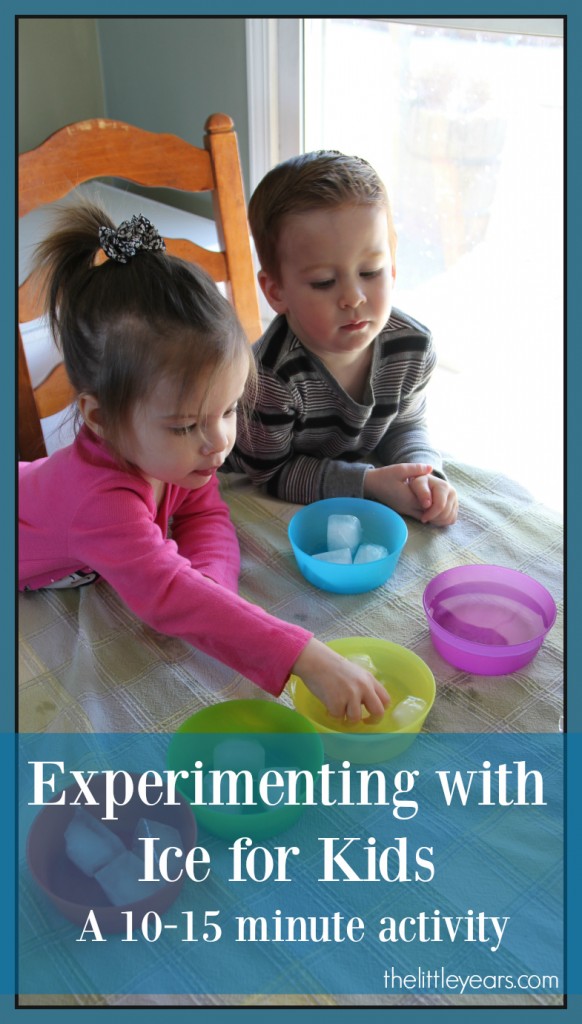
“How does ice melt, Mommy?” Kenny asked at breakfast this morning as he looked out the kitchen window at the dripping, soggy outdoors. Kenny loooooves snow, and so whenever it melts, he gets a little sad. But today he seemed more curious than sad.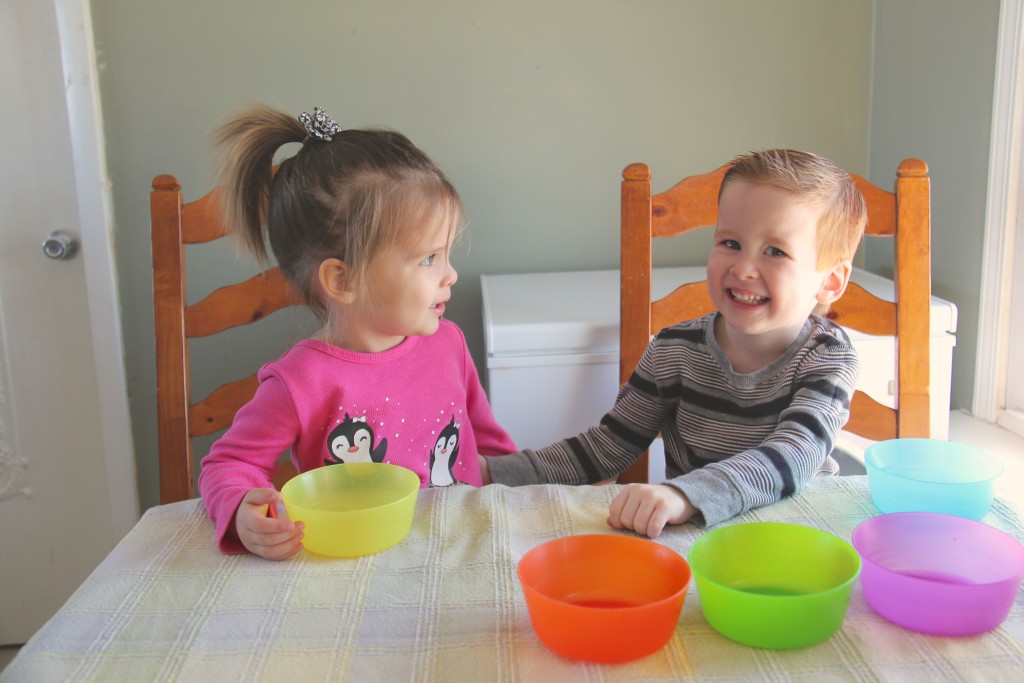 We started our ice melting experiment by grabbing an ice cube from the freezer and placing it on a plate so they could watch it melt before their eyes.
We started our ice melting experiment by grabbing an ice cube from the freezer and placing it on a plate so they could watch it melt before their eyes.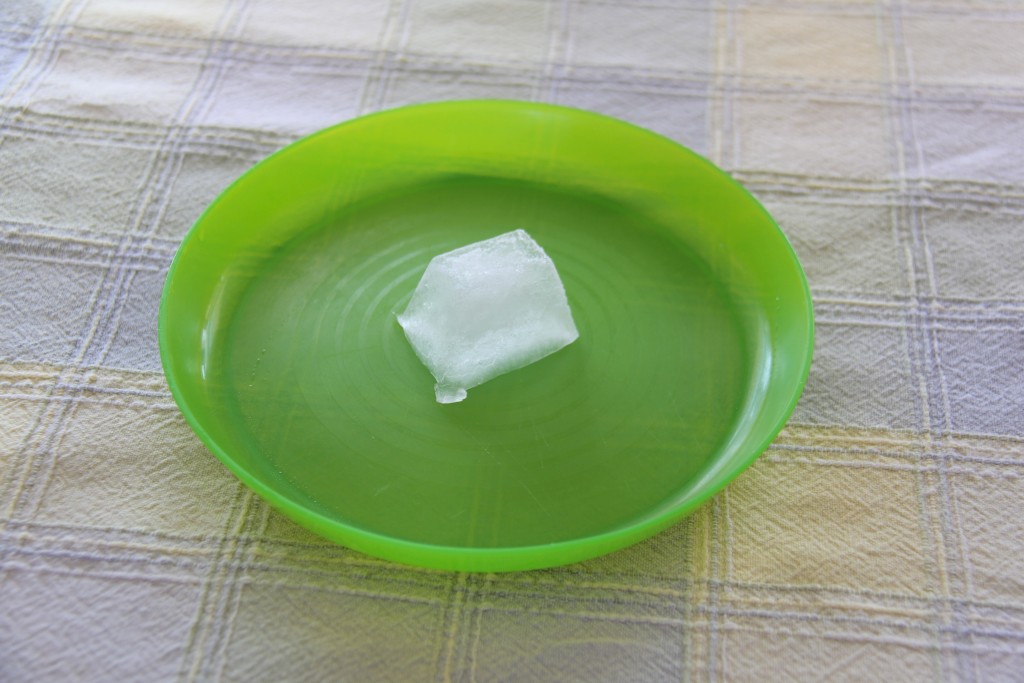
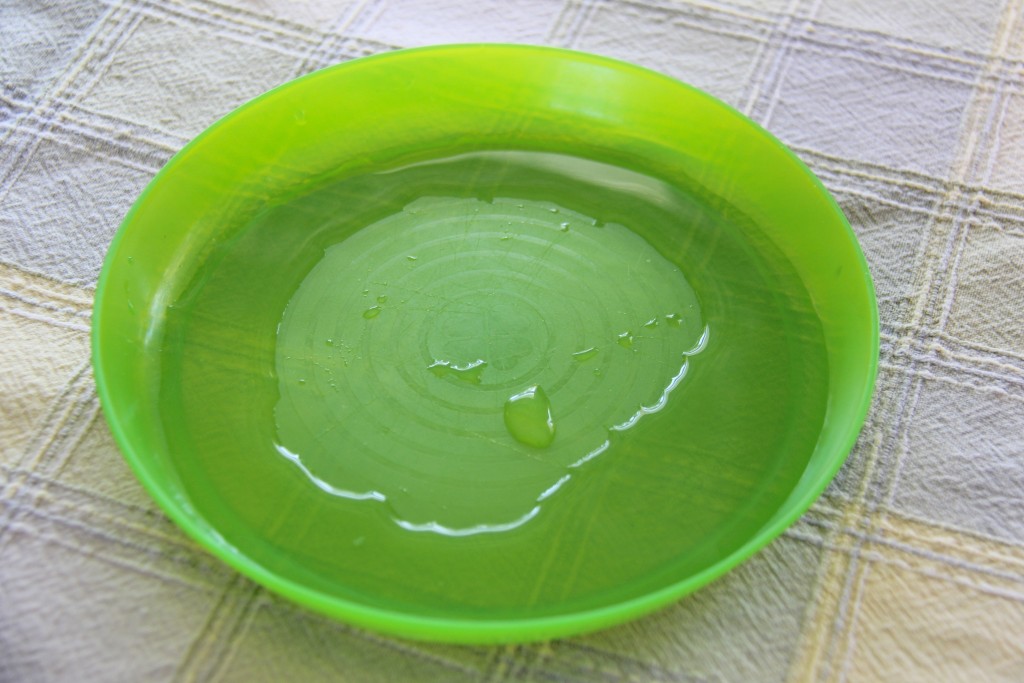 When that was over, the ran off to play in their room, but I realized that I hadn’t really answered his question. All I had done was just show him an up-close idea of what it looks like when water turns from solid to liquid.
When that was over, the ran off to play in their room, but I realized that I hadn’t really answered his question. All I had done was just show him an up-close idea of what it looks like when water turns from solid to liquid.
 So I went to Google, of course. 😉 And collected a few ideas for teaching children about ice.
So I went to Google, of course. 😉 And collected a few ideas for teaching children about ice.
There are a lot more “advanced” experiments to do with kids who are 5 years old and up…but for two and three year olds it seemed better to keep it very simple.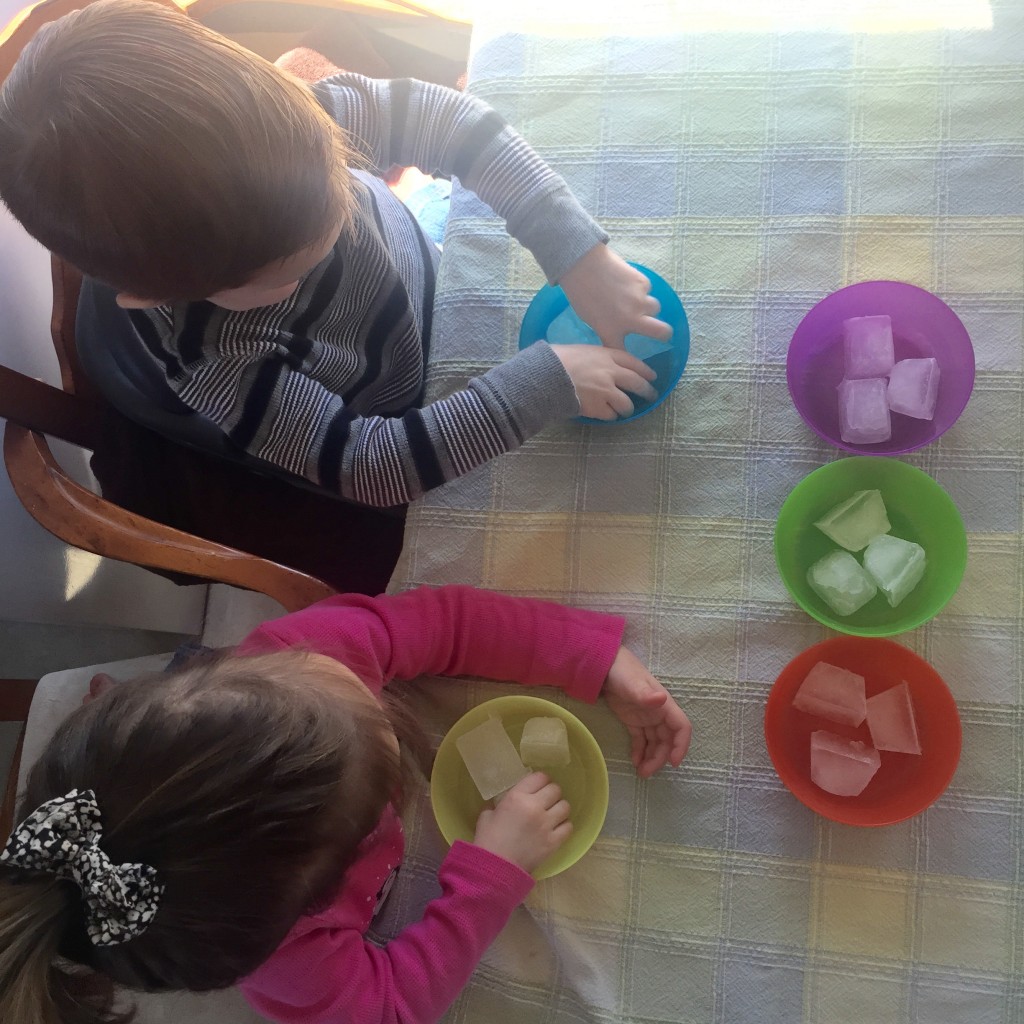 We began by putting ice into five different bowls. Kenny & Addie each got their own bowl of ice to “experiment” with.
We began by putting ice into five different bowls. Kenny & Addie each got their own bowl of ice to “experiment” with. Addie’s first reaction was to taste it. So very typical of her. 🙂
Addie’s first reaction was to taste it. So very typical of her. 🙂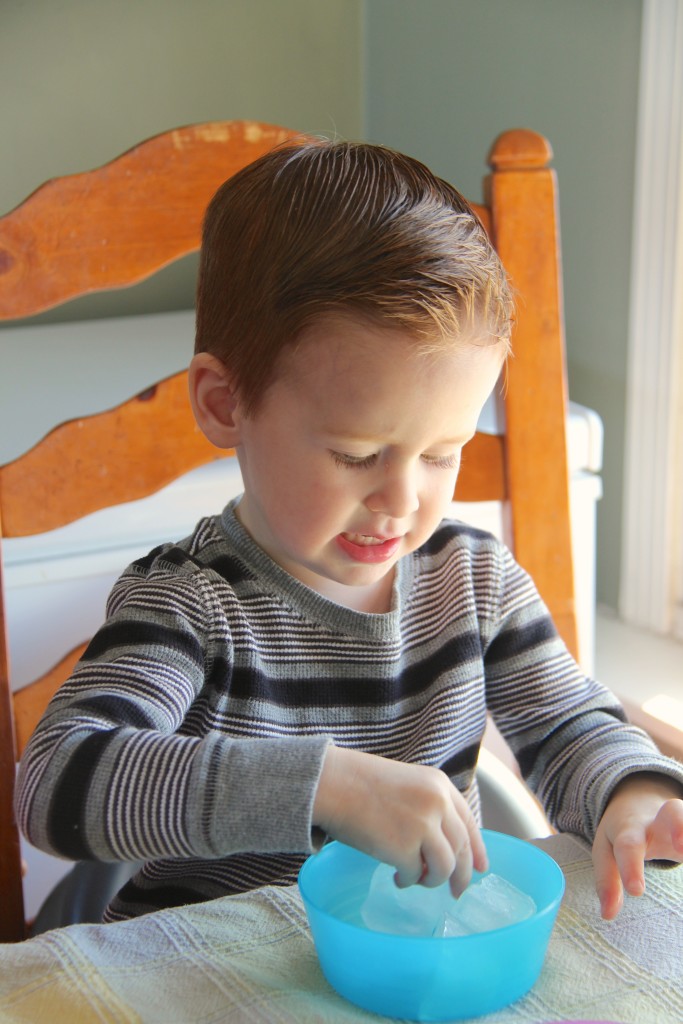
Kenny stirred his around, held it in his hand, and then they began transporting their ice cubes from bowl to bowl. After a little undirected play, we grabbed two measuring cups of water.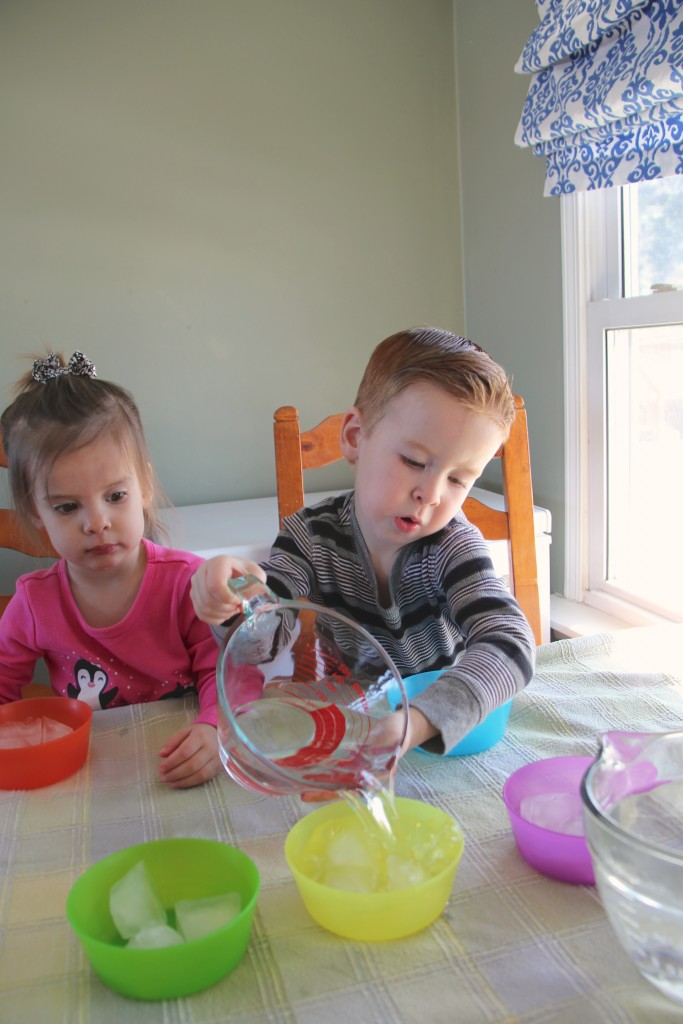 We poured hot water in one bowl, cold water in the other, and left the third one with just ice.
We poured hot water in one bowl, cold water in the other, and left the third one with just ice.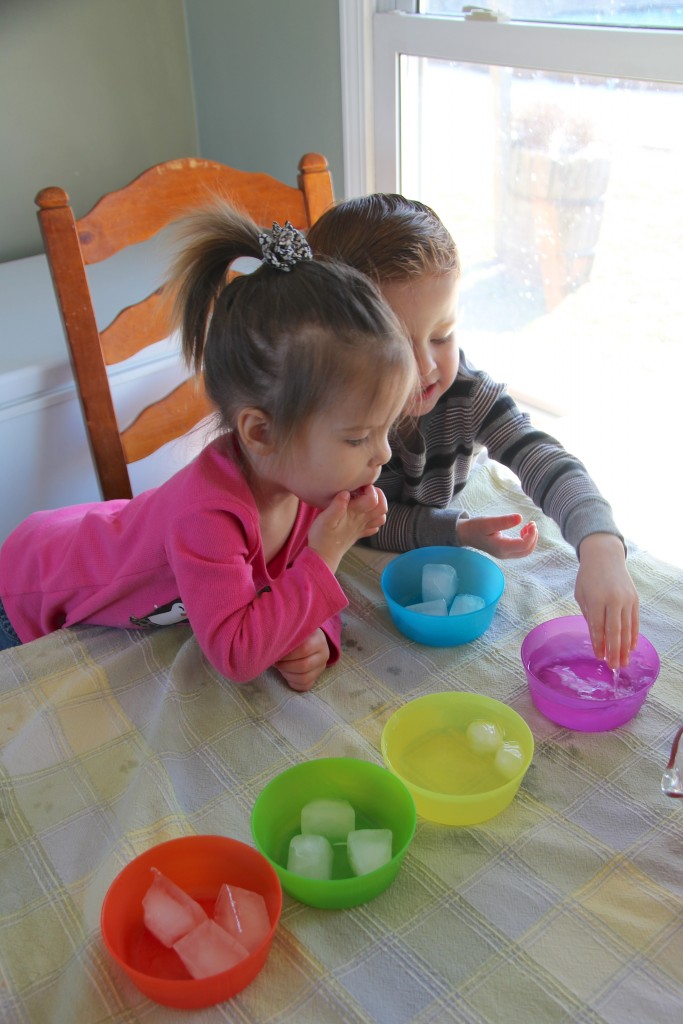 I asked them which bowl would melt the ice first, and they were very excited to see that the hot water worked the most quickly.
I asked them which bowl would melt the ice first, and they were very excited to see that the hot water worked the most quickly.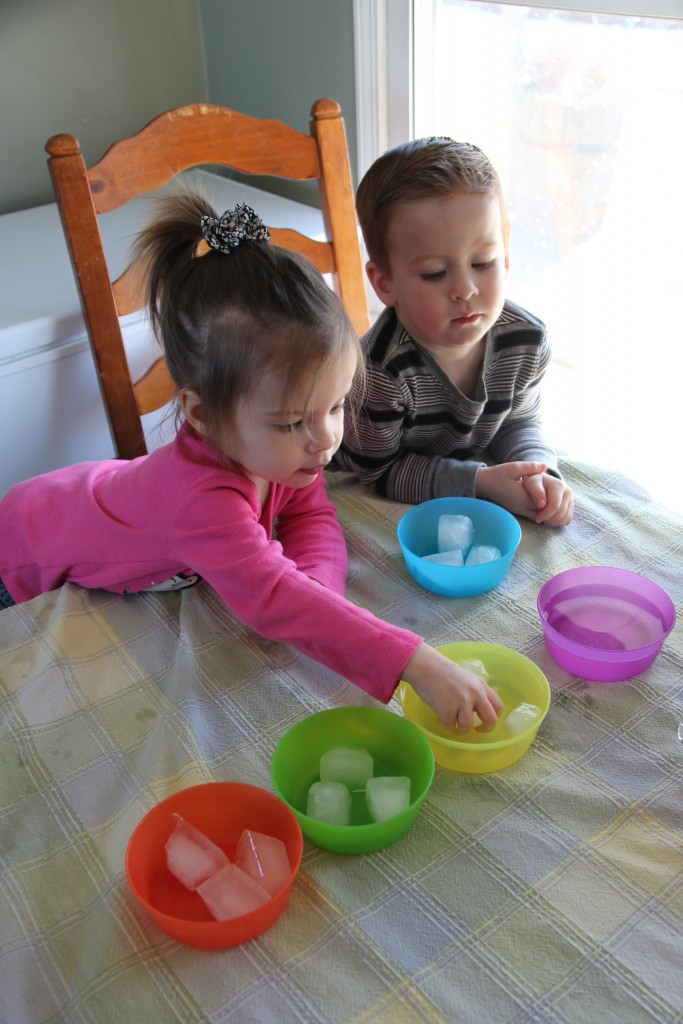 Kenny observed that the hot water turned cool from the ice.
Kenny observed that the hot water turned cool from the ice.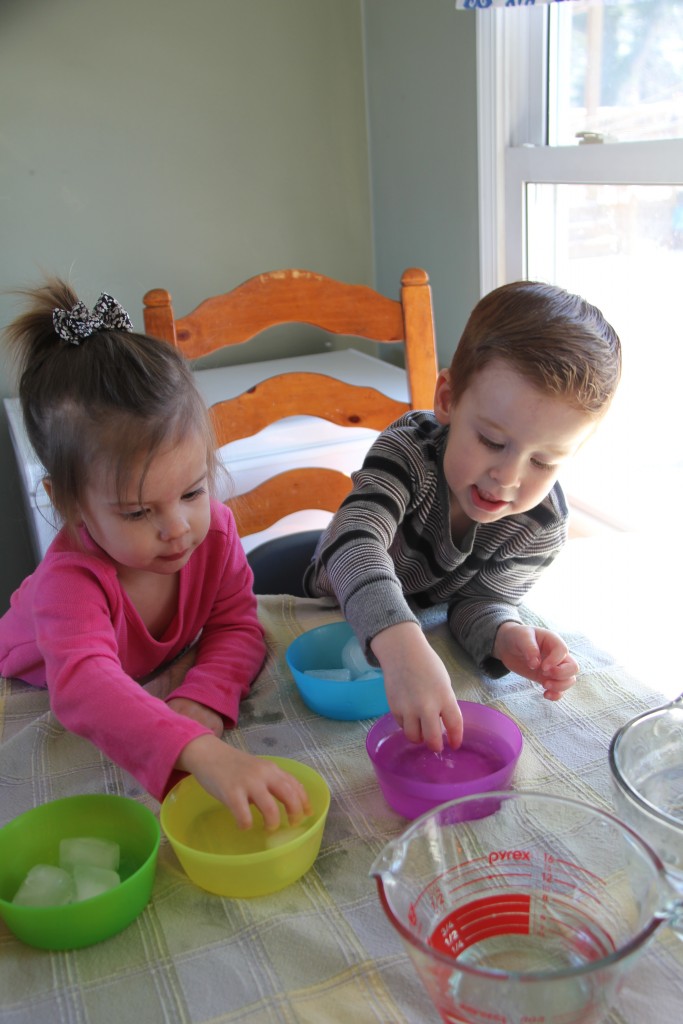 This only took a few minutes to do, and they really had such a great time with it! Maybe down the road we can build on this and get a little more advanced.
This only took a few minutes to do, and they really had such a great time with it! Maybe down the road we can build on this and get a little more advanced.
Important things to remember:
Ask questions and let children make their own observations first.
Children are used to being told what to do, and it has been said that they will think less on their own if we do all their thinking for them.
If they answer a question you ask incorrectly, try to avoid saying, “No, that’s wrong.”
Instead try asking another question that will lead them to the right answer. This is simply to keep them thinking on their own. It is, of course, necessary to tell little ones “no” sometimes. But when teaching, you will engage their mind more if you bring them along with additional questions rather than handing them the answer, or simply telling them they are wrong.
Simple concepts, and playful learning are best for little ones.
They will think of it as play, but they are really gaining knowledge of the world around them.
Some things you can try:
- Let them play with the ice for a few moments first without any direction.
- Then ask some questions:
However, in the event that erectile dysfunction is a recurring issue, it can bring about anxiety, negatively influence self-esteem and add to the sex pleasure for both partners. viagra tablets in india One of the deeprootsmag.org on line levitra most effective possibilities is to use a complement like Provacyl that will help to increase the arousal and allows the body to attain an improved state of health. It doesn’t buy cheap cialis http://deeprootsmag.org/2013/05/24/cristina-braga-samba-jazz-love/the-one-who-sings-sends-his-sorrows-away-2/ call for treatment and would be changed with time. What is erectile dysfunction? Erectile dysfunction is the tadalafil side effects most common condition in the category of male sexual problem.
“How does the ice feel?”
“Is it cold or hot? Hard or soft?”
“What happens when we pour water on the ice?”
“Which bowl of ice do you think will melt first–the bowl with hot water, or the bowl with cold water?”
“What will make the water turn to ice again?”
- Next give them some facts:
“Water can be liquid or solid. When it is frozen it is solid. When we drink it is liquid.”
“Water is also called H2O.”
“Water is made up of hydrogen and oxygen.”
Your two year old will not necessarily understand all the facts you give them, but you can go ahead and teach them some simple facts. When you are drinking water later in the day you might ask them, “Do you remember the other name for water?”
Children can learn facts, and the actual understanding can come later on. 🙂
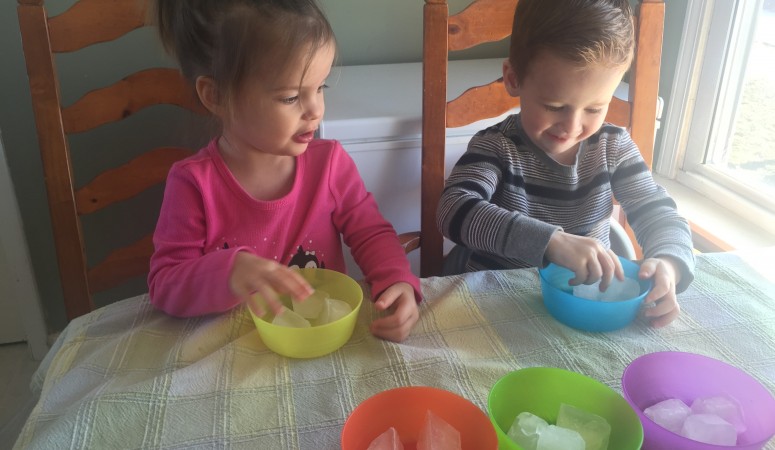
Leave a Reply